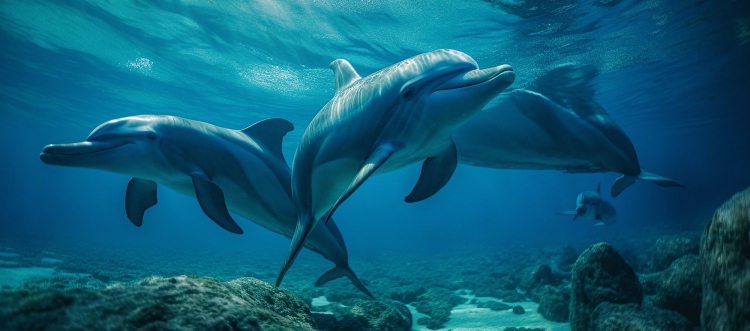The International Maritime Organization (IMO) has welcomed the adoption of a landmark agreement on a new oceans treaty to protect marine biodiversity on the high seas.
IMO Secretary-General Kitack Lim said the landmark treaty will reinforce efforts to protect biodiversity.
The new legally binding international instrument on the conservation and sustainable use of marine biological diversity in areas beyond national jurisdiction – known as ‘BBNJ’ – was adopted on 19 June, at the United Nations headquarters in New York, United States.
It was adopted at the resumed fifth session of the Intergovernmental Conference, and will open for signature on 20 September. The treaty will enter into force after ratification by 60 States.
IMO Secretary-General Kitack Lim said: “I congratulate all parties on the successful adoption of the new legally binding instrument on marine biodiversity in areas beyond national jurisdiction. This landmark achievement will no doubt reinforce efforts to protect biodiversity in line with the aims of the 2030 Agenda for Sustainable Development and the Kunming-Montreal Global Framework for Biodiversity.
IMO has participated throughout the negotiations, given the organization’s mandate and expertise, and will continue to participate, in the implementation of the new instrument. IMO looks forward to further strengthening our cooperation with Member States, the UN family and all other stakeholders.”
- Advertisement -
IMO has been present throughout the negotiations and has actively cooperated with the UN, in particular with Division for Ocean Affairs and the Law of the Sea (DOALOS) of the Office of Legal Affairs of the United Nations; the International Seabed Authority (ISA) and with other specialized agencies like the Food and Agriculture Organization of the United Nations (FAO), Intergovernmental Oceanographic Commission of UNESCO (IOC) and the International Labour Organization (ILO).
IMO officials have outlined IMO’s experience in developing universally accepted regulations for international shipping to ensure shipping’s sustainable use of the oceans, through more than 50 globally-binding treaties.
Ships plying their trade across the world’s oceans are subject to stringent environmental, safety and security rules, which apply throughout their voyage.
IMO regulations are enforced through a well-established system of flag, coastal and port State control. Many IMO measures actively contribute to the conservation of marine biological diversity in areas beyond national jurisdiction, including the International Convention for the Prevention of Pollution by ships (MARPOL) and the International Ballast Water Management Convention – which aims to prevent the transfer of potentially invasive aquatic species – as well as the London Convention and Protocol regulating the dumping of wastes at sea.
IMO has adopted numerous protective measures, which all ships must adhere to, both in and outside designated sensitive sea areas (PSSAs) and in special areas and emission control areas. These include strict rules on operational discharges as well as areas to be avoided and other ship routing systems, including those aimed at keeping shipping away from whales’ breeding grounds. IMO’s Polar Code is mandatory for ships operating in the Arctic and Antarctic. IMO has also issued guidance on protecting marine life from underwater ship noise.
After more than a decade of preparatory works, the United Nations General Assembly decided, in 2015, to develop an international legally binding instrument under UNCLOS on the conservation and sustainable use of marine biological diversity of areas beyond national jurisdiction (UNGA resolution 69/292). The series of conferences to develop the new BBNJ legally-binding instrument under the United Nations Convention on the Law of the Sea (UNCLOS) began in 2018, and successfully concluded with the adoption of a new treaty on 19 June.




Comments are closed.